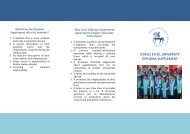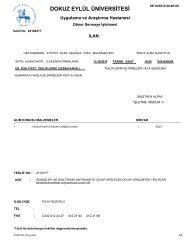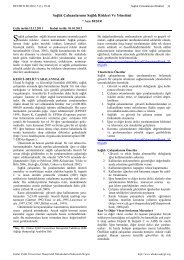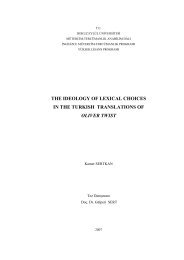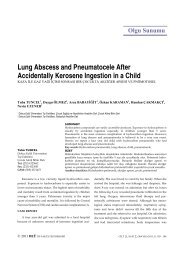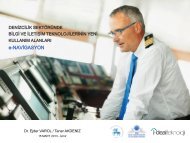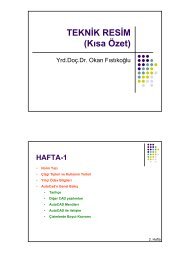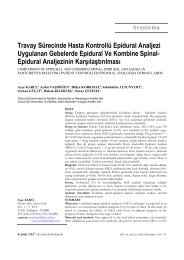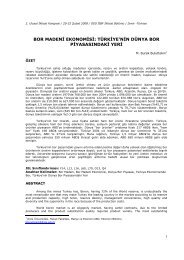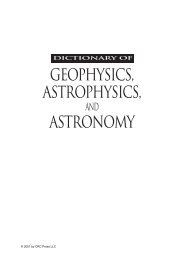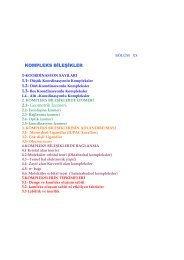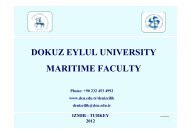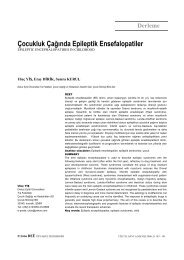tc dokuz eylül university institute of social sciences translation and ...
tc dokuz eylül university institute of social sciences translation and ...
tc dokuz eylül university institute of social sciences translation and ...
You also want an ePaper? Increase the reach of your titles
YUMPU automatically turns print PDFs into web optimized ePapers that Google loves.
somewhere else, you must run at least twice as fast as that'" (Carroll, 1993; 161) "in<br />
reference to rapidly changing political situations", <strong>and</strong> <strong>of</strong> course, the Cheshire Cat's<br />
"we're all mad here" (Carroll, 1993; 67).<br />
Lewis Carroll's effect on the English language is one not normally delved into<br />
<strong>and</strong> studied, but its impact is most pr<strong>of</strong>ound. Through his love <strong>of</strong> play <strong>and</strong> words,<br />
Carroll brought to his language a sense <strong>of</strong> joyfulness <strong>and</strong> childlike amusement. Many<br />
<strong>of</strong> his nonsense words have entered the English lexicon, <strong>and</strong> just as many, if not<br />
more, <strong>of</strong> his whimsical phrases have been on display in our growing culture, ever<br />
since the publication <strong>of</strong> Alice's Adventures in Wonderl<strong>and</strong>.<br />
CHAPTER TWO Theoretical <strong>and</strong> Methodological Framework<br />
I. Pun Translation<br />
As is well known, theoretical as well as critical discussions <strong>of</strong><br />
the <strong>translation</strong> <strong>of</strong> wordplay usually revolve round the<br />
question whether wordplay is "translatable" at all. Logically<br />
speaking this question makes sense only if one has in mind an<br />
implicit or explicit a priori definition <strong>of</strong> what "<strong>translation</strong>" or<br />
"a <strong>translation</strong>" is. Indeed, while no one will deny that<br />
wordplay in a source text is amenable to various forms <strong>of</strong><br />
interlingual processing, the obstacle is usually that the kind <strong>of</strong><br />
processes that wordplay will lend itself to cannot be<br />
reconciled with the scholar's preconceived criteria <strong>of</strong> what<br />
constitutes ("good" or "genuine") <strong>translation</strong> (Delabastita,<br />
1991; 146).<br />
In comparing English <strong>and</strong> Turkish, as is well-known, there are two choices<br />
for the translator to translate you in English- sen or siz in Turkish. For the verb ‘to<br />
meet’ in English one can find at least four possible equivalences in Turkish, e.g.<br />
karşılaşmak (to meet by chance), buluşmak (to meet arranging before), tanışmak (to<br />
meet for the first time), karşılamak (to pick someone up at the station or e<strong>tc</strong>.) <strong>and</strong> so<br />
forth. Translators have to make choices <strong>of</strong> this kind all the time: the need for such<br />
choices is a consequence <strong>of</strong> the absence <strong>of</strong> one-to-one equivalence between<br />
languages (Delabastita, 1996; 133). If one considers that wordplay is a prominent<br />
feature in a multitude <strong>of</strong> texts - from the Old Testament to post modern writing... -<br />
16




